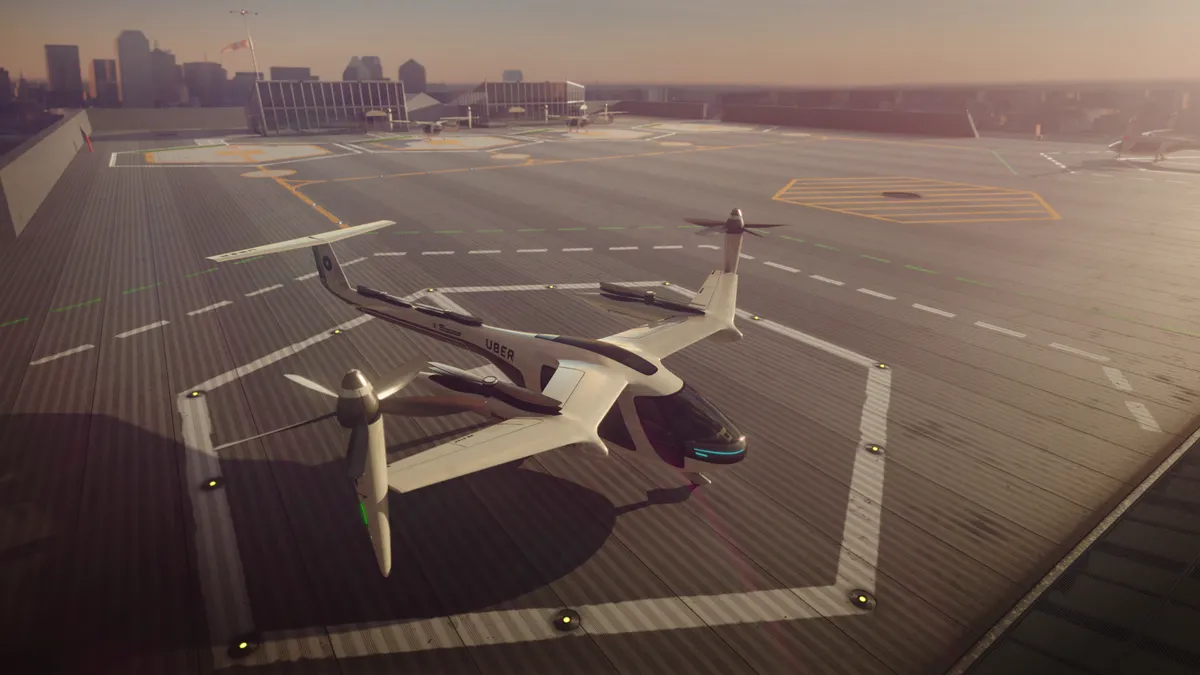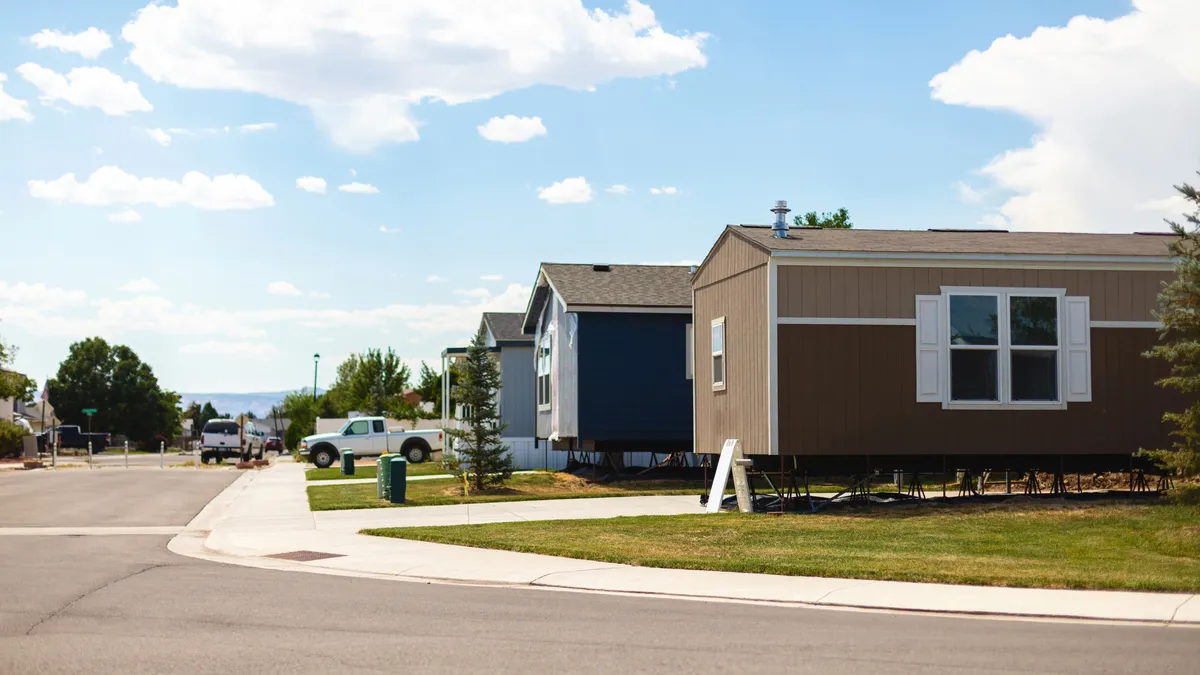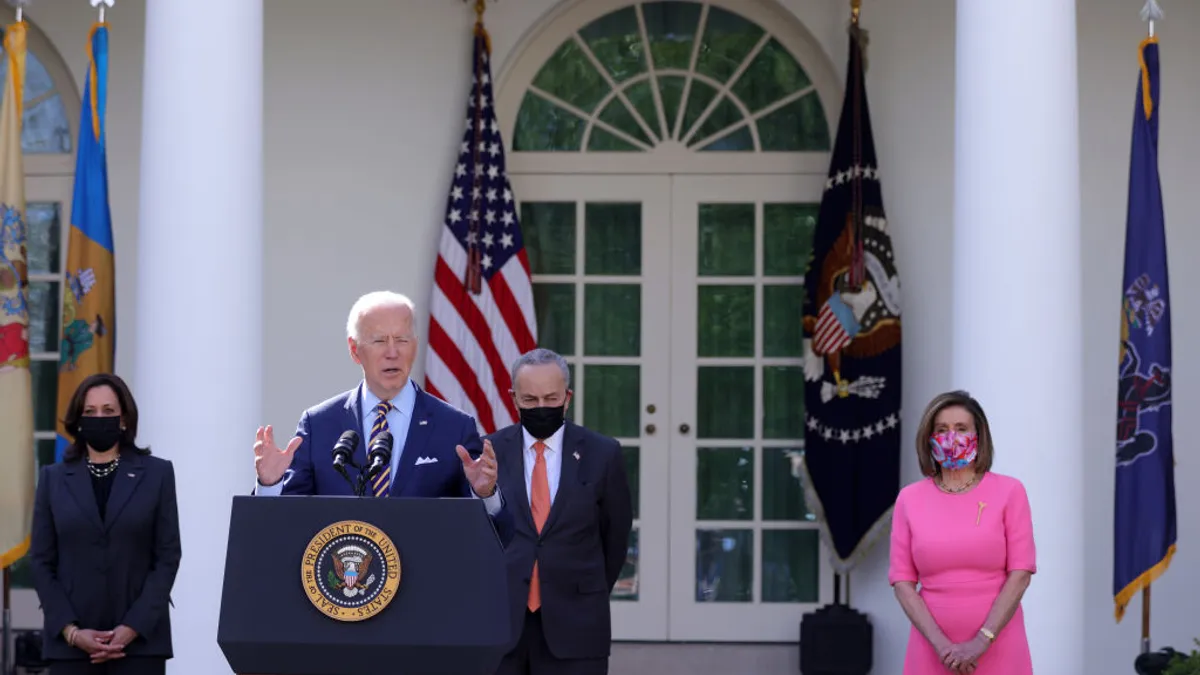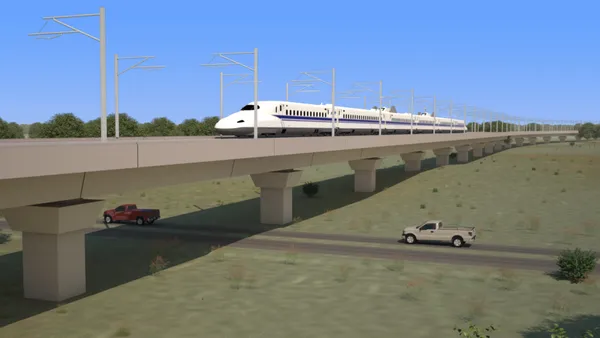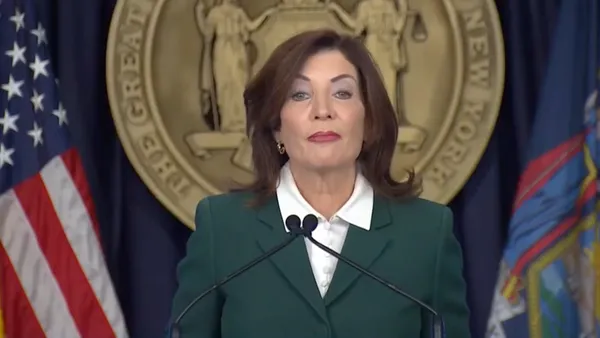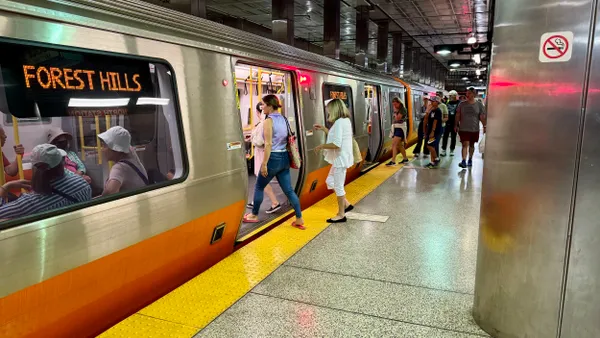Dive Brief:
- Uber Elevate, the air transport arm of ride-hailing giant Uber, recently announced it has tapped the University of Texas at Austin (UT Austin) to help develop rotor technology for its flying car network dubbed uberAIR.
- UT Austin researchers will work with U.S. Army Research Labs (ARL) to "explore the efficiency and noise signature of stacked co-rotating rotors" for vertical take-off and landing (VTOL) aircrafts, according to a news release.
- "In addition to the technical expertise we bring to this area, we also already have a rig to test new rotor configurations right here on campus," said UT Austin associate professor Jayant Sirohi in a statement. UT Austin touts Sirohi as one of the country’s "leading experts" in unmanned aerial vehicle (UAV) technology.
Dive Insight:
Uber is aiming to make its uberAIR fleet commercially available to riders by 2023, and while this is a short deadline, Uber has brought on the top recruits to make it happen. The researchers at UT Austin will join Uber Elevate's already-impressive arsenal of aerial technology experts and aircraft manufacturers, most notably ARL and NASA, which signed a Space Act Agreement with the company in November 2017 to develop Unmanned Traffic Management (UTM) concepts and Unmanned Aerial Systems (UAS).
The uberAIR fleet will only be available in two U.S. cities to start — Dallas-Fort Worth and Los Angeles — with flight demonstrations slated for 2020. The company also currently has a call for an "international launch city" on its website, noting a third city will "allow for a balance between focus and city diversity that will set the service up for long-term success." Uber originally tapped Dubai as this international launch city, however the company reopened the selection process due to unexpected delays and obstacles in that city.
The selection of Dallas and Los Angeles as pilot cities was well thought-out, as both cities suffer from immense traffic congestion, yet present many innovation and aviation opportunities. For instance, Uber believes Los Angeles residents will be making "heavy use" of uberAir by the time its ready to host the 2028 Olympics Games, Uber Chief Product Officer Jeff Holden told the Los Angeles Times.
And, assuming the pilot launches are successful, uberAIR and other VTOL flight networks may become the next ubiquitous service of the sharing economy. In an opinion piece for Smart Cities Dive, Kaushik Rajashekara of the IEEE Transportation Electrification Community compared the flying car "tipping point" to that of cellular phones. "Thanks to a host of technological advances, flying cars are now more viable than ever — just in time to become a new transportation option for smart cities and rural areas alike," he said.



